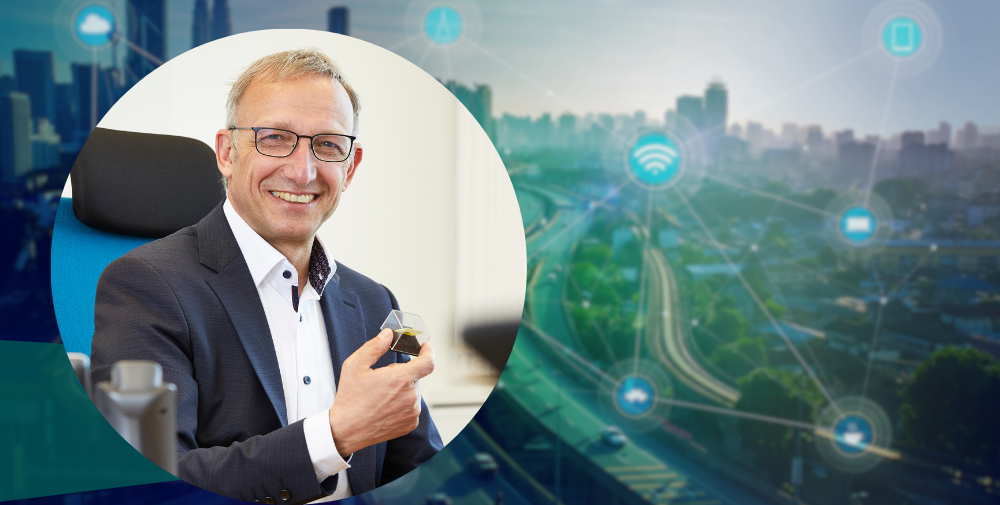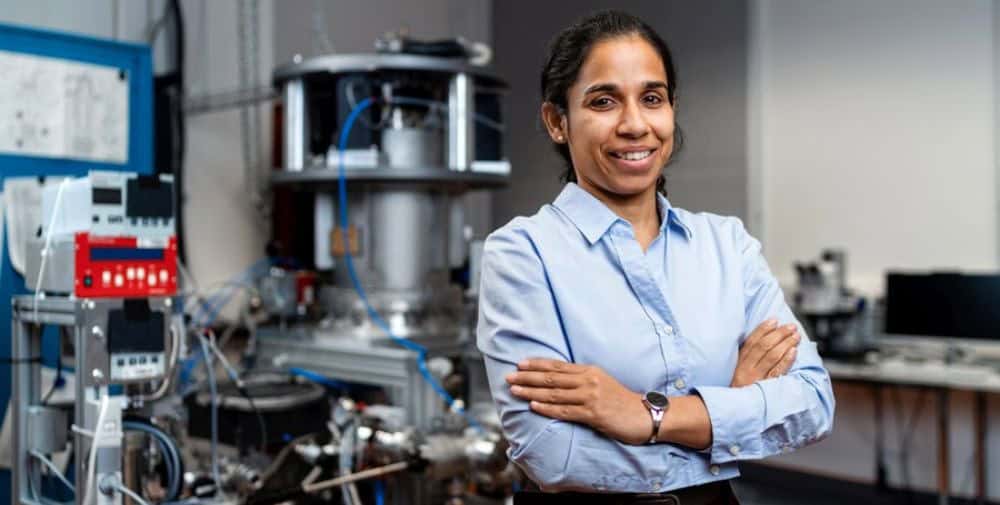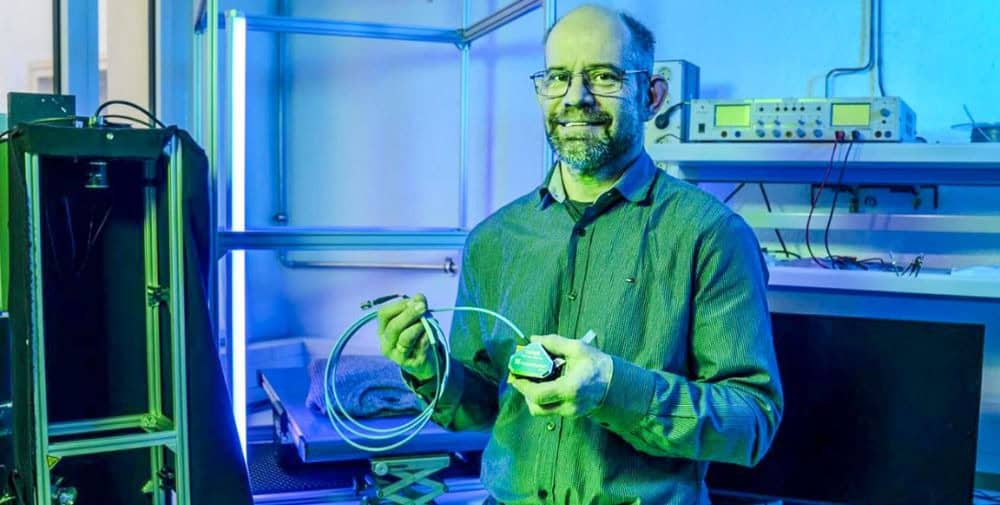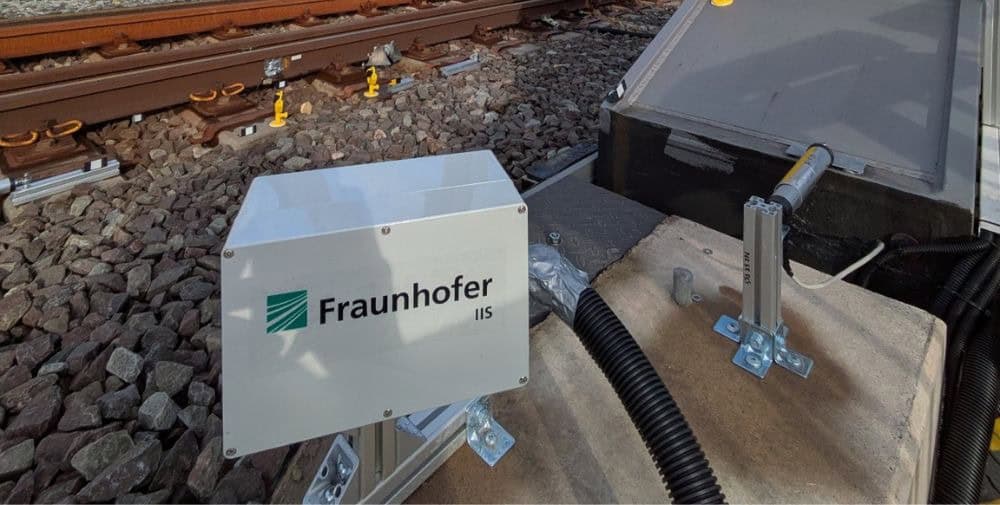Professor Kuhn, what is the need for smart systems? What is their general, greatest benefit?
Prof. Dr. Harald Kuhn: In the 1970s, smart systems were primarily a playground for proven experts, whereas today they are ubiquitous and used as a matter of course. The smartphone is a well-known example of this. However, the added value of smart systems goes far beyond their personal use. In the industrial sector, for example, they can save energy by regulating and controlling local resources and processes. In healthcare, smart systems can help us identify health risks in a more standardized and specific way, better diagnose rare diseases with diffuse symptoms, and ultimately treat them. In agriculture, smart systems make it possible to record animal welfare, determine agricultural parameters such as soil moisture, detect contamination in water bodies and initiate controlling countermeasures. Thus, smart systems offer broad social and economic added value.
Since when do smart systems belong to the “key technologies” and why is that so?
Prof. Dr. Harald Kuhn: The history of smart systems is closely linked to the development of chip technology. This is because the intelligent heart of these systems is always a processor that processes data and makes decisions. The idea of home automation, now known as the “smart home,” has been around since the 1970s. Since the 1990s at the latest, however, it has been impossible to imagine our lives without smart systems and they have become a key technology. Whether in buildings, in industry or in means of transport. In the meantime, they can be found in every area of life. I need only remind you of cochlear implants for hearing loss, and car safety systems such as airbags and ESP as first-generation smart systems.
Europe wants to become climate neutral by 2050. How does smartification contribute to meeting the ecological goals? Doesn’t the increased degree of technological complexity make it more difficult to meet the demands placed on systems in terms of resource efficiency and recycling?
Prof. Dr. Harald Kuhn: If the number of smart systems continues to grow at the current rate, they will account for half of global energy consumption by 2050. At the same time, smart systems also save an enormous amount of energy. One example of this is the smart home, where intelligent ventilation can save many times more energy than the smart system itself consumes. Similarly, in the area of “smart manufacturing,” intelligent management of manufacturing processes and predictive maintenance can save many times what the smart system itself consumes in resources. Finally, the manufacturing of the smart systems themselves can be more energy-efficient and environmentally friendly. This also includes our own manufacturing and development processes at Fraunhofer ENAS and the Center for Microtechnologies (ZfM). At this point, I would like to explicitly point out that the goal cannot be achieved without interdisciplinary cooperation that spans organizational structures and clusters. For example, as Fraunhofer institutes of the Microelectronics Alliance, we are bundling our activities together with Leibniz institutes in the Research Factory Microelectronics (FMD) and Europe-wide with institutes such as CEA-LETI, IMEC, VTT to name just a few, with the aim of securing and further expanding Europe’s pioneering role in the field of smart systems. In addition, the use of Artificial Intelligence (AI) in smart systems will lead to a further massive reduction in energy consumption in the future. Energy savings of over 50% are possible for a single small consumer. Overall, smart systems will therefore play a major role in achieving climate neutrality.
Which innovations or products are most likely to find their way into industry in the near or distant future?
Prof. Dr. Harald Kuhn: We are currently experiencing high demand in the consumer sector, particularly with regard to mobility and the smart home. In the future, we will also see increasing networking of man and machine in the area of Industry 4.0, where cooperative robot systems will work hand in hand with humans in manufacturing. Smart components will play a crucial role in this, as they serve to create a kind of distributed nervous system in robotics. Moreover, in perspective, smart systems will also become increasingly important in the field of intelligent testing, multidimensional data acquisition and intelligent manufacturing or line control. But a lot will also happen in the field of intelligent medicine. Wearables, for example, i.e. intelligently networked computer systems that are worn directly on the body and measure various bodily functions, are already almost as widespread as smartphones. In all of the above-mentioned areas, we cooperate with universities, other research institutions – especially in the context of FMD, startups, SMEs and, of course, industry. After all, in all these areas, those involved depend on the transfer of knowledge and know-how.
What contribution do basic and applied research make here today and in the future?
Prof. Dr. Harald Kuhn: Smart systems are inconceivable without basic and applied research. In this way, for example, the institutes of the Research Factory Microelectronics, but also our Center for Microtechnologies (ZfM) and Fraunhofer ENAS are closely interlinked. Excellence initiatives and projects are dedicated to specific issues. In basic research, questions such as “What can be captured smartly? How does the measurement principle work in sensor technology? How can energy be obtained? How can the device communicate? What materials are needed to implement the principle? Can critical raw materials be replaced? How can smart systems be recycled?”. Application research then answers questions such as “How can I implement my principle to create a safe product? What standards and specifications must be met?”. These questions are fundamentally timeless, but are always embedded in the current context. Currently, the focus is on answering questions about how we in Europe and Germany can develop and manufacture the next generation of competitive smart systems. How we can make them more intelligent, more functionally secure, more compliant with data protection, more tamper-proof and tap-proof. How we can manufacture them in a more resource-efficient way or replace critical raw materials. Last but not least, how we can use smart systems for the good of society so that they develop their function effectively and are widely accepted at the same time.
How do you see the state of German research on a global scale?
Prof. Dr. Harald Kuhn: The history of smart systems began in Europe in the field of home automation, with the emerging systems and protocols also finding sales in the USA and the Far East. The technological basis was formed by highly integrated circuits as well as sensors and actuators, which were manufactured in Europe and the USA. In the early days, German companies such as Siemens played a key role, including in the development of the first cell phones. In the cell phone sector, not only production but also innovation now takes place primarily in Asia. The Asian countries have caught up strongly in international competition, not only in cell phones, and have become much stronger in research than they were a decade ago.
Europe, and Germany in particular, should continue to play an important role in the innovation of smart systems in the future, as these are of enormous social and economic relevance. To this end, it is important to build on existing strengths, e.g. in sensor and actuator technology, and to reduce weak points.
With regard to future systems, Europe is massively building up capacities in the fields of quantum sensors, quantum communication and quantum computing as well as in manufacturing and research on microelectronics, especially with a focus on More than Moore in the direction of multifunctionality. Topics such as optimized design, hardware-based heterogeneous integration and test and reliability evaluation of integrated sensors and electronics are further areas in which Europe should secure or take a pioneering role. New clusters in research such as FMD, but also other strongly growing European metropolitan areas (Saxony, southern Germany, the Netherlands, Belgium, the Alpine region, and many more), European Digital Innovation Hubs, and increasing cooperation in the industry are a suitable European response to international competition.
In the field of AI, Europe and also Germany are lagging behind the USA and China.
Here, we need to focus on our strengths in order to be better able to compete internationally. Sustainability, i.e. data protection, reliability and traceability in the field of AI could be such strengths, which ultimately also ensure lasting acceptance among the population.
And finally, a very personal question: How “smart” is your everyday life and what smart system could you not do without?
Prof. Dr. Harald Kuhn: Smart systems are omnipresent in my everyday life and have found their way into many of my daily processes. Be it through the smartphone, the car or during sports. I am also currently busy equipping my home with smart systems. I’m particularly excited about the many possibilities in the area of security. For example, you can equip your home with intelligent surveillance cameras, alarm systems and door locks that interact with each other and enable a quick response if necessary. The home can also be equipped with smart smoke detectors and CO2 detectors that communicate with other devices and sound the alarm in an emergency. This opens up many options in the smart home sector, and I enjoy finding the most practical and intelligent solution for me.
Thank you very much for the interview, Professor Kuhn.
_ _ _ _ _
Our interview partner
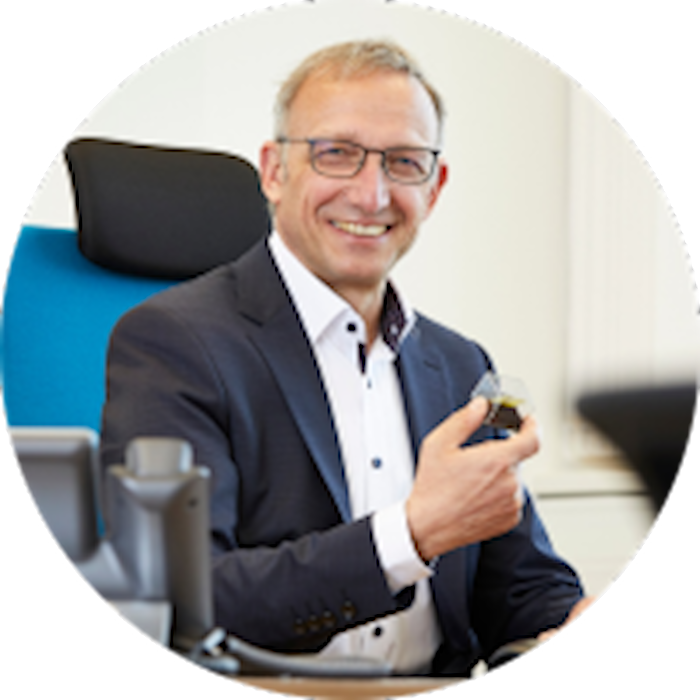
Prof. Dr. Harald Kuhn
Institute Director, Fraunhofer Institute for Electronic Nano Systems ENAS in Chemnitz
_ _ _ _ _
Fraunhofer ENAS
The particular strength of the Fraunhofer Institute for Electronic Nano Systems ENAS lies in the development of smart integrated systems for different applications. Fraunhofer ENAS develops single components, technologies for their manufacturing as well as system concepts and system integration technologies and transfers them into production. The institute offers research and development services from the idea, via design and technology development or realization based on established technologies up to tested prototypes.
Fraunhofer Institute for Electronic Nano Systems ENAS
Technology Campus 3
09126 Chemnitz
Phone: +49 371 45001-0
👉 To the institute website
